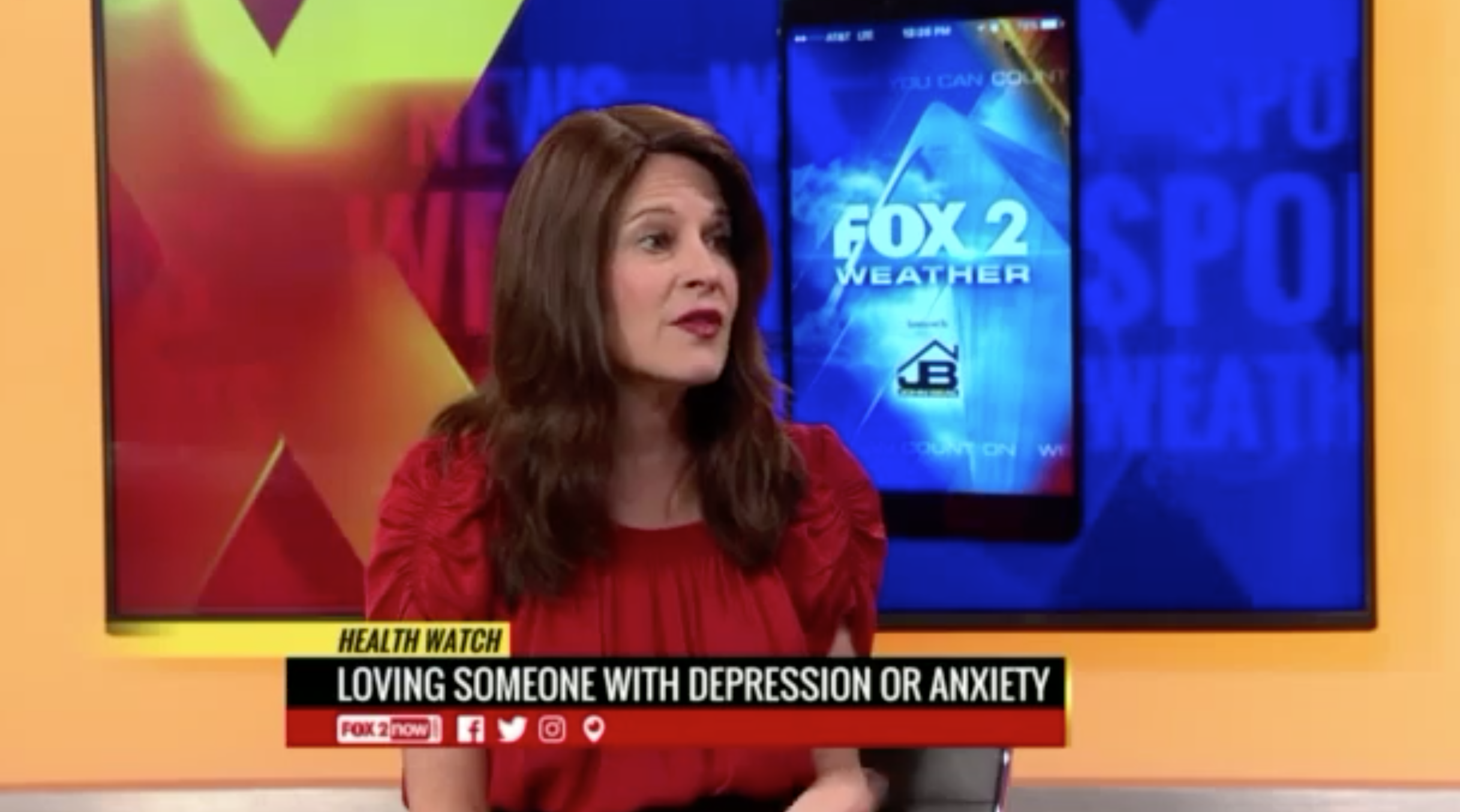I’ve come to understand empty nest as a verb, “empty nesting” I like to call it. The letting go process is fundamental to parenting and continuous. Some empty nest experiences create such emotional turmoil and sadness that parents face empty nest syndrome. Each person needs to find where they want to direct that new energy but I think the first step is to frame this stage of life with a FRESH CHAPTER MINDSET.
The Four Pillars For Long-Lasting Love
After three decades of counseling struggling couples, and after experiencing transformation within my own marriage, I've been able to identify the core components of a lasting and fulfilling relationship. I'd like to introduce you to what I have found unshakeable over time, what I call The Four Pillars.
The Power of Our Words
The Competitive Couple: How to Avoid this Toxic Dynamic
Whether it’s about who does more or who makes more, or maybe it’s who works the hardest or who is in better shape. The bottom line is that while couples yearn to come together as one, the human ego has a pesky way of allowing competition to invade the safe haven needed for love to deepen and grow. Here are some common competitive scenarios I hear about:
Family Estrangement: Why Children Cut Off Their Parents and Tips for Healing
Some splits between parent and child come from something sudden or dramatic, but most broken ties develop gradually and stem from misunderstandings and less extreme, albeit hurtful, interactions. Let’s talk about what hope there might be if you are estranged from your parent or child. Here's what I recommend…
Should Kids Come First? Keeping Your Marriage Strong While Raising a Family
When a new couple reaches out for help, almost without exception, it quickly comes to light that the problems in the marriage, in large part, stem from this repeated proclamation, “Well, the kids have always come first.” Now here they sit on the counseling couch, and to some degree in a marriage run empty with one or both feeling neglected, unloved.
Depression in Men: What's at the Root and How to Help
Modern Love and Millennials: What's the Point of Getting Married?
Holiday Cheer vs. Holiday Fear: How to Go Above the Overwhelm
We are all faced with a myriad of challenging life circumstances, enough to make anyone feel anxious, insecure or overwhelmed. The truth is, we are not here to simply live a life of stillness and stagnation. To taste real satisfaction and freedom, we are here to overcome, grow and transform. So how do we deal best with times of great stress and stay connected to joy and peace along the way?
Movie Love vs. Real Love
Even though we know romantic comedies are great for lightness, fun and open-hearted laughter—and are not meant to depict real life—we are still influenced by what we see, unconsciously deeming movie love as normal love. So enjoy and laugh away but be mindful of the messages about love coming through.
Should I Stay or Should I Go?
I’ve created a checklist to inspire you to ask yourself some important questions — 7 about yourself, 7 about your partner/relationship. This exploring process is to awaken awareness, action and personal growth — through which greater clarity will likely unfold. I draw these exploratory questions from my own marriage journey and my work with couples, which have both been profoundly enhanced by what I have learned about relationships from the wisdom of Kabbalah.
Phone Addiction and Its Perilous Effect On Relationships: Simple Changes Can Make A Big Difference
According to recent studies, a large majority of partners deemed smartphones and other technology devices as the cause of greater relationship conflict and dissatisfaction, and for many, this included lower life satisfaction as well. While our smartphones offer tremendous obvious benefits, including staying in better touch, they have also introduced unprecedented barriers to human connection, within ourself and between each other. Awareness is the first and essential step to creating motivation for change. Then I'll share 4 Simple Changes to keep ourselves in better balance.
The Strength in Vulnerability: Raising Sons Who Know How They Feel
Being vulnerable can be difficult for anyone, but especially for men. While girls receive plenty of messages to keep their feelings under wraps, recent research continues to show how far society's masculinity soundtrack takes boys off course from connecting with their emotional side. I read an article this week in the New York Times called, Talking to Boys the Way We Talk to Girls by Andrew Reiner. Even I, already sensitive to this issue, was blown away by the studies Reiner cited showing the damaging stereotypical messages boys receive to “man up,” often in concealed ways and starting as early as infants.
From the get-go, even before our son Jeremy was conceived, I felt a strong sense of purpose to raise a boy freed from the limitations of macho-based confidence. From the moment he was born, my parenting thought process was guided by this desire — to help our son be comfortable with his vulnerable emotions, nurture his innate empathy, and appreciate the true strength and courage in being real.
Our society often reinforces a belief system that resilience means suppressing emotions, pushing our way through. Susan David, a Harvard psychologist, says the opposite is true. Rather than suppressing difficult emotions and thoughts, we thrive by becoming Emotionally Agile, meaning “to be with ourselves and our emotions.”
How do we start teaching our sons they can have vulnerable emotions? Here are some tips to consider:
LISTEN WITH EMPATHY
Make it safe to share feelings. The best way to do this is to listen without rushing to a solution or judging. Sometimes our own fears get in the way and we get reactive when our kids feel upset. Just reflect and let the boy or man in your life know you understand. Be on the lookout for signs of fear or sadness, disappointment or insecurity. Ask open-ended questions, like “You seem upset, what’s going on?” “How was your day — what was the best and the worst part?” Actively listen, validate, show you understand and that you want to hear how he feels. It’s always good to show trust and belief in him and his ability to grow stronger from this experience.
MODEL EMOTIONAL OPENNESS
When we ourselves are comfortable with our emotions and our pain, and can express our needs and feelings in a proactive way, kids watch and pick up on this healthy emotional vibe. I asked Jeremy today, now 21, for his perspective on how we (hopefully) taught him, as a boy, to be in touch with his emotions. He texted, “The way you guys live. Anytime something is on your mind you guys tell it how it is— so we can understand, adjust and change if it’s a recurring thing.” Jeremy continued “ … to sit down and talk about things together, be it planning or issues that come up, this made for an evident culture of not holding things in.” While our kids still groan to us when they tease about our family meetings, apparently they were a good thing.
TEACH EMOTIONS 101
Find opportunities to drop little emotion lessons in here and there, first and foremost that emotions are not something to run from or fear. For example, something I learned from the wisdom of Kabbalah, “It’s a strength to 'be with' our pain and not run from it.” Another tidbit of truth: "When we get our feelings out, we feel more in control and less likely to blow up in the wrong place or in the wrong way.”
ENCOURAGE MUSIC, ART, LITERATURE, NATURE, ANIMALS, SPIRITUALITY
Our culture can send messages to boys that the liberal arts side of education is a feminizing idea. Boys have been known to tease and judge each other for these interests. Look for little seeds of interest in the arts or nature, animals or music — and pour on the support. Our son is convinced that his passion for music, and being encouraged to pursue his musicianship, helped him connect to his softer side. He said, “it was easier for me to find my emotions through music.” Sports and video games have their place but they don’t typically open your heart the way the arts and nature do. If spirituality or religion is a part of your life, being open with this in your home, sharing about your journey & what you are learning-- this can help encourage inward turning.
BUY HIM A JOURNAL
Journaling is the tool I suggest most for my clients, more than any other tool, across age, gender and the personal or relationship issue that brings them in. Don’t push it, but suggest a journal or log. Writing our thoughts and feelings down awakens the inner communication channels — and can make it easier to express to others once you’ve gotten more clear of your own inner voice. Identifying our thoughts and feelings can give us a greater sense of control making us less likely to respond with our knee-jerk reaction.
REMIND HIM TO SPEAK FROM HIS HEART
When my husband and I first got married, I soon noticed that it was hard for him to be real. He would ask me for advice on giving a talk at work or writing a card to a friend or family. All I had to say was, “Speak from your heart.” And the perfect message would come through.
FIND A GIRL MENTOR
Whether that’s an older sister, a neighbor or cousin, having a girl close to your son’s age in his life can really make a difference. Not his mom who is miles away generationally, a young positive girl mentor can teach your son how to treat a girl with respect and sensitivity. If she’s mature enough and willing, she can help model how it’s cool to talk about feelings sometimes.
How to Approach Tricky Conversations with Sensitive People
As counter-intuitive as it might feel, we benefit greatly from challenges — especially once we ACCEPT AND EMBRACE FRICTION as a tool to grow stronger within ourselves, to become better people and ultimately to build the real love and unity we so yearn to share with others. Here are 7 tips and considerations when approaching difficult conversations with sensitive people (or sensitive conversations with difficult people).
Making the Most of Your Mother-Daughter Adult Relationship
Of all our family ties, the mother-daughter one tends to remain important through adulthood. With life expectancy ever increasing, we mothers and daughters will only continue to spend more of our lives together as adult women. What a great opportunity to invest in making this bond an even greater source of strength and growth.
Establishing Boundaries and Being True to Yourself in Your Close Relationships
We are people who need people. We simply cannot reach our true potential without being loved. The paradox is that to attract the right kind of person into our lives, one with whom our love can grow and grow, we must first have a strong connection with our self and the light we possess inside. Only when we are emotionally independent, when we let go of the desperation and intense “need” for someone else to validate or want us, to praise or make us a priority, do we build the proper platform on which to actually draw the love we so desire.
How to Support Your Mate with Depression, Anxiety and Disorders
When I work with couples in my counseling practice, time and time again, I see one or both struggle with some kind of anxiety, depression or other mental health disorder. While not a deal breaker by any means, unresolved mental health problems can lie at the heart of couples’ greatest friction and disconnection.
How Happy Couples Deal with In-Laws: Tips for the Holidays... and All Year Long
Inherently tricky to navigate for many, in-law strife shows up most especially between mothers- and daughters-in-law. And pouring into the mix the degree of conflict and division from our unprecedented election year 2016, the views and dynamics among all family members- especially in-laws, makes for quite a vulnerable time. Here are some tips to help make the holidays and this relationship go more smoothly this year, and from now on.
Election Stress Disorder: Tips for Mental Balance and Relationship Harmony
While this election season has stirred up an especially bitter brew of indignity and conflict, one common bond crossing the political and gender aisle is the election stress. The American Psychological Association just released a new survey indicating that more than half of American adults are either very or somewhat stressed by the 2016 election.
Raising Teenagers: Staying Connected
Teens need a healthy attachment more than ever during this trial and error phase of life. The more we stay close and connected to our teens (not to be confused with hovering or controlling), the better we can support them emotionally. Through our attachment, we equip them with a compass as they find their own truth and strength, and decision making power.




















